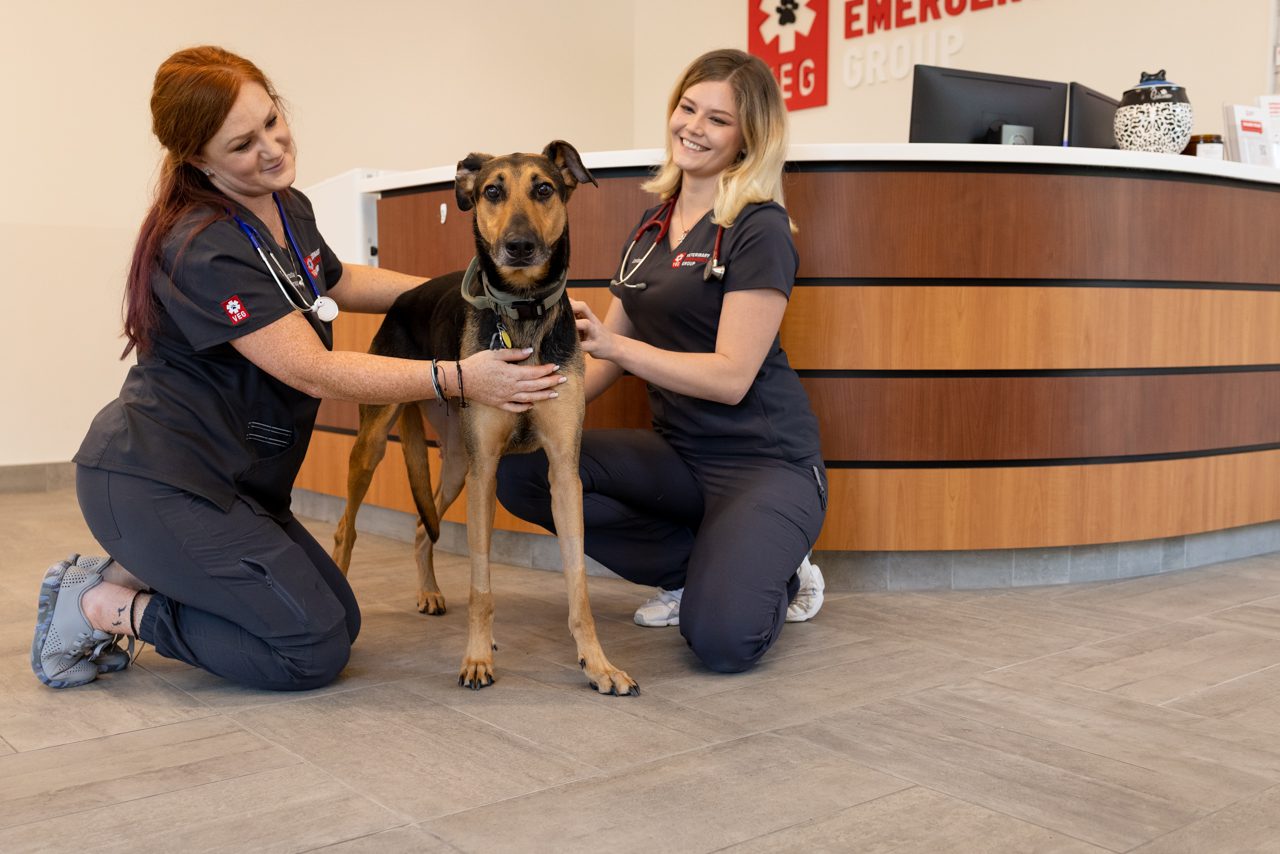
Heartworm in Dogs: What it is and How to Protect Your Pet
Dr. Melissa Ogg
Call & Speak with a doctor Open 24/7, Even Holidays!
Walk in today for:
Emergencies
Point-of-Care Ultrasound
Urgent Care
X-Rays
Diagnostics + Testing
End-of-Life Care
Surgery
Treatment + Hospitalization
As a dog owner, you’ve probably heard of heartworm before. But what is this condition, and what does it mean for your dog? How can you keep your dog from dealing with heartworm, and what should you do if your pet already has this disease? In the article below, we’ll give you a quick rundown of everything you need to know about heartworm in your pet.
Common Questions About Heartworm in Dogs
This information about heartworm disease can help you get started learning more but be sure to talk to your vet for specifics related to your own dog, too.
Listed below are the most common questions about heartworm in dogs:
What is Heartworm Disease?
Heartworm disease is a condition caused by a parasitic worm that can invade a dog’s body. This worm is carried by mosquitoes from one infected dog and can be transmitted to another through a mosquito bite.
The worms reproduce quickly inside a dog’s body and can soon take up residence in the dog’s organs. The heart is the organ that is most commonly affected, but heartworms can also be found in the lungs.
Is Heartworm Disease Deadly?
Heartworm disease can be deadly if it is left untreated. Over time, the worms will multiply so much within the dog’s body that they take over the heart completely. The heart will be unable to do its job, and this will lead to death.
However, with the proper treatment, dogs can live long, full lives after having heartworm disease. Although a dog with heartworms may not be able to be as active as one without this condition, the disease does not have to be a death sentence. Your vet can give you more information about your specific dog’s options.
Is Heartworm Disease Contagious?
Dogs cannot spread heartworm disease to other dogs. Additionally, dogs cannot give heartworm disease to cats or humans, or to any other animal. With that said, however, if you have one dog with heartworms and one without, there is always a chance that a mosquito could bite both dogs and spread the disease this way.
If you live in an area that is known for high mosquito populations at any time of the year, it is a good idea to consider putting your dog on heartworm preventative medication. This way, you don’t have to worry about the spread of this disease.
What are the Symptoms of Heartworm Disease?
The most common symptom of heartworm disease in dogs is a dry, hacking cough. This cough may worsen shortly after the dog has eaten, and it typically also worsens with activity. Although chronic coughing can be caused by many underlying health problems, heartworm is one possibility.
Other symptoms include a lack of energy and depression. Dogs may also lose their appetite and may lose a significant amount of weight when dealing with heartworm disease as well. These symptoms may be associated with any number of other health problems, so have your dog checked by a vet if you notice these signs.
How is Heartworm Disease Managed?
If your dog is diagnosed with heartworm disease, your vet will likely recommend an injectable treatment. This is very effective at killing adult heartworms in a dog’s body. At the same time, your dog will likely also be given medication to kill the larvae of the heartworms, so the condition does not return.
Some dogs may need to undergo surgery to remove heartworms, but this treatment option is very uncommon. Following heartworm treatment, your dog will need to rest for a few weeks and will likely be given a round of antibiotics too.
How is Heartworm Disease Prevented?
You can prevent heartworm disease in your dog by keeping up with a regular monthly heartworm pill. This pill is very safe for almost all dogs and poses very little risk. Although it may cause nausea for the next day after it is given, most dogs have no trouble taking a heartworm preventative pill.
Your vet will give you more information about the brand and type of heartworm prevention that is most recommended for your dog. Follow your vet’s advice for your specific pet’s individual needs.
Contact VEG for More Information About Heartworm in Dogs
Did you learn something useful about heartworm disease in dogs? Although this condition can be life-threatening if left untreated, it is very treatable in most situations. If your dog is diagnosed with heartworm disease, your vet will help you choose the right management and treatment solutions moving forward.
If your dog does not have heartworm disease, it’s never too early to start them on some type of prevention instead. Talk to your vet if you have any questions or concerns about putting your dog on heartworm medication, and make sure to keep up with this medication for best results.
For more information about this condition, contact VEG by calling one of our locations. All of our hospitals are staffed with compassionate, caring professionals who always put the wellbeing and comfort of your pet first. When you come to VEG, you can be rest assured that your pet will get the proper care they need.

